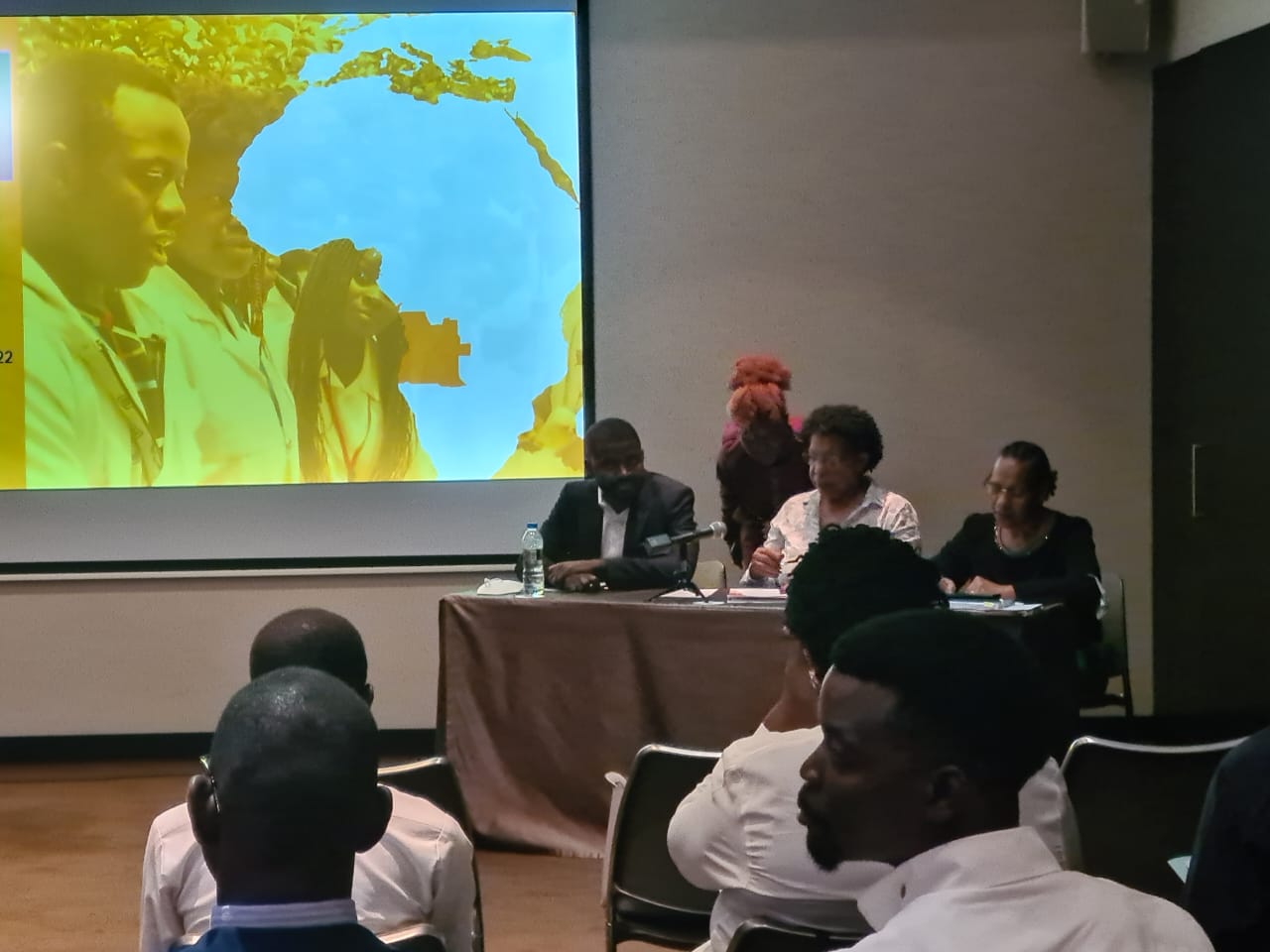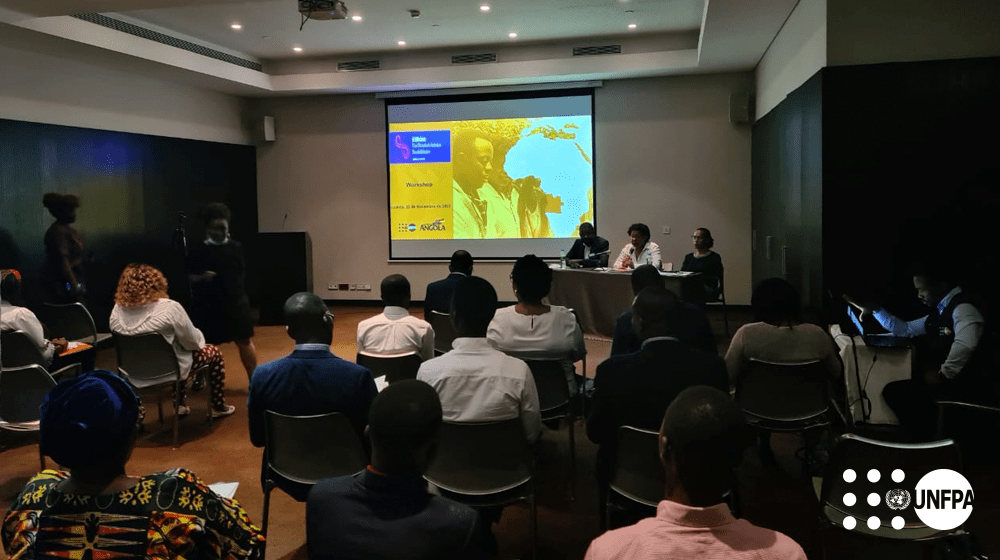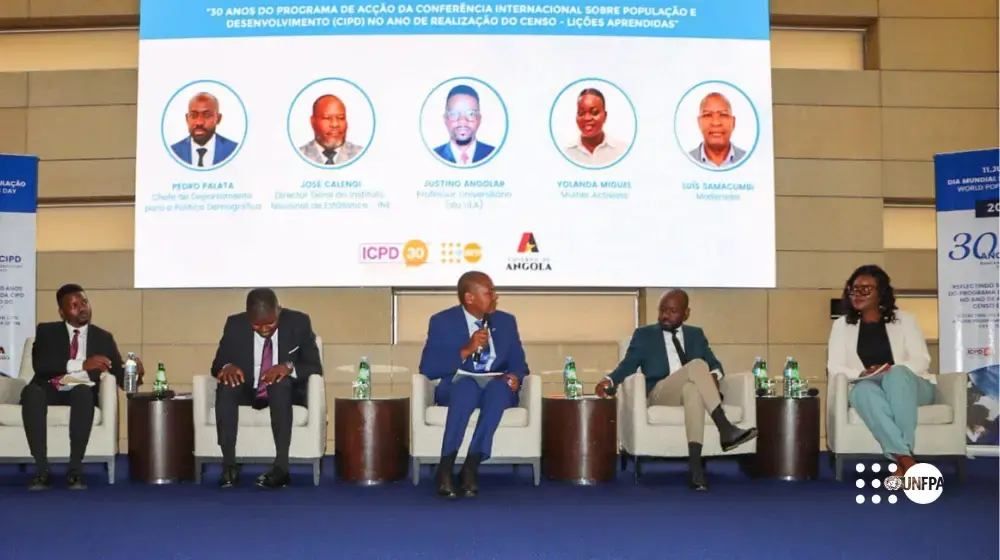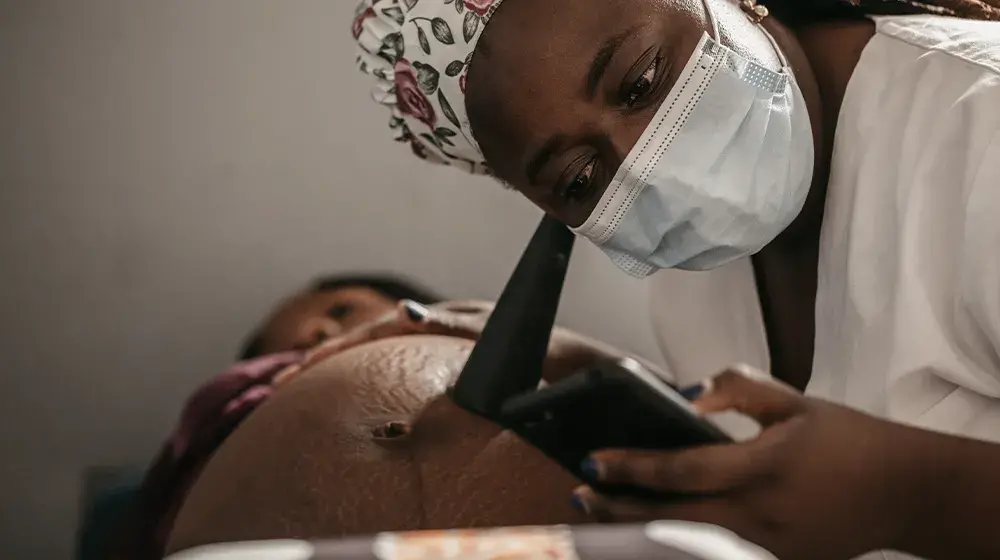The Office for Population Policy of the Ministry of Economy and Planning (GPP/MEP) in partnership with the United Nations Population Fund (UNFPA) held a Workshop on “A World of 8 Billion People, Towards a Resilient Future for All”, referring to November 15th, the day when the World Population reached eight billion.

The ceremony was chaired by Dr. Celso Borja National Director of GPP/MEP who stressed that the date is an important milestone to:
- Reflect on the impact of the world's population reaching 8 billion and the consequences for each country.
- To take advantage of the moment to discuss the opportunities of a world with 8 billion people for the development of the world and of the countries, regardless of the challenges that still afflict part of the population (hunger, poverty, climate changes, conflicts such as war that cause large population movements) ensuring a better quality of life for all
- To find mechanisms of national and international solidarity in order to work together to address poverty, discrimination, violence and exclusion, in order to promote the rights and options of millions of people in the world and in countries.
Angola, with approximately 36.5 million population, contributed 0.45% to the eight billion.China is currently the most populous country in the world with 1.4 billion people. In his speech, Dr. Celso Borja stressed that population growth in the world is a testament to the achievements of humanity, including the reduction of poverty and gender inequality, advances in health and greater access to education. As a result, more women survive childbirth, more children survive their early years, and decade after decade, life is longer and of higher quality.
He also highlighted that although it is a world of opportunities, there are also challenges and that in the general context the global community (including Angola) must ensure that all countries, regardless of their populations, whether they are growing or decreasing, must be equipped to provide a good quality of life for their populations and can uplift and empower their most marginalized people. No one should be left behind, and every individual deserves to benefit from a more just, prosperous and sustainable world.
The goevrnement of Angola's senior figure also highlighted that in order to achieve a better world and realize the 17SDGs and 2030 agenda, countries must anticipate and understand how their population is changing. They must also develop unique data-based responses that can help mitigate the potentially negative effects and take full advantage of the opportunities that also come with demographic changes. This process is called demographic resilience.
During the workshop, topics related to the Intercessory Angolan Population and the Impact of Reproductive Health on Population Dynamics and Early Pregnancy in Angola were also addressed.
In that workshop, topics related to the Intercessory Angolan Population and the Impact of Reproductive Health on Population Dynamics and Early Pregnancy in Angola were also addressed.





